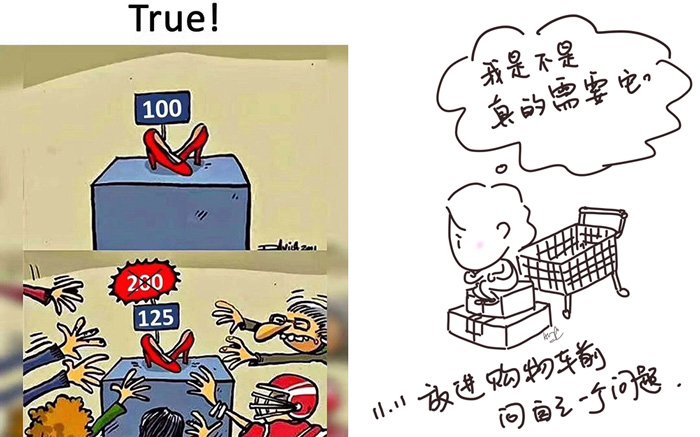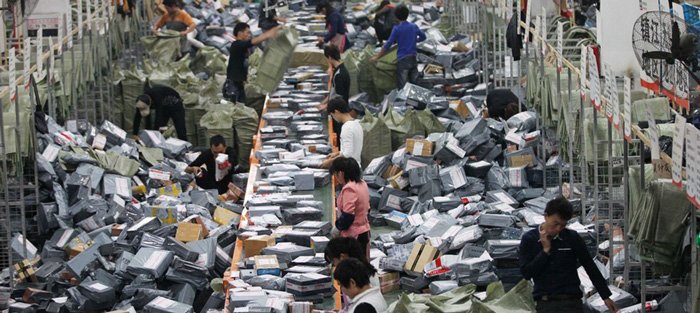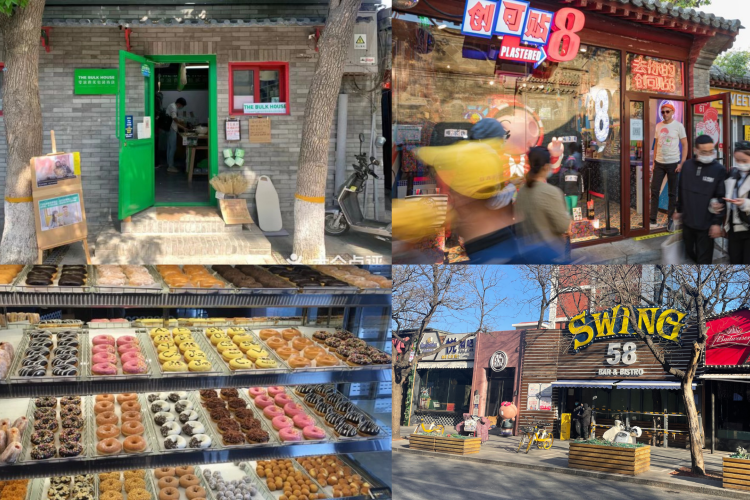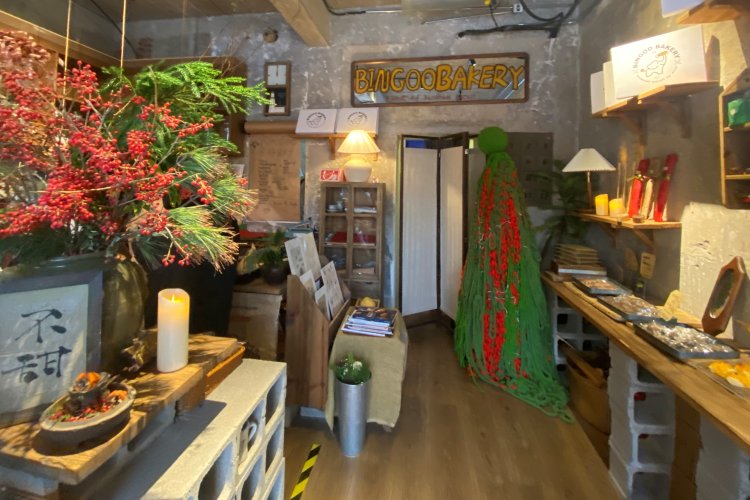Dear Singles' Day, Enough Already
The Enough Already is a campaign initiated by Green Initiatives to bring the focus on the wasteful spending orgy that happens on Singles’ Day (Nov 11) in China every year.
The campaign aims to remind consumers to be mindful of their purchases, to emphasize happiness and the value of less is more, and to introduce fun eco-friendly alternatives to this festival.
Because happiness does not come from things.
What is the problem with Singles’ Day?
Singles’ Day, despite its name, is not focused on celebrating the independence of being single. Instead, it is an uninhibited celebration of consumerism. Millions of people in China congregate on their phones or computers to browse their favorite brands and online stores to check for the year’s biggest discounts. On this day, people check-off their long-awaited desired wish-lists and must-haves.
So what's the problem? Corporations give out big discounts; consumers get their long-awaited goods at low prices. Isn’t this a win-win situation for everyone?
Consumer Manipulation
While it seems that consumers are benefiting from this day, the corporate reality says otherwise:
- Businesses are known to mark up prices beforehand, only to decrease them on Singles’ Day. Businesses also use this day to get rid of their obsolete/unsellable products or clear out old stock to prepare for the new year.
- Companies come up with deals to lure consumers into buying more, and customers end up buying more things that they often don't need, simply to get more discounts.
- Thousands of attention-grabbing marketing campaigns crop up all around town and through online channels to sell products, manipulating consumers into buying unnecessary things. Further, advertisements are often in printed form and lead to huge waste.
But individuals often fail to ask themselves questions such as: Why do I spend my hard-earned money on items that are not made to last long-term? Why do I need another plastic avocado soap dispenser or another pack of 20 sparkly hairpins, only to never use them?

The fact remains that the corporate, profit-driven business model only makes sense when companies sell more, and sell more at all costs.
The Real Cost of 11.11. Discounts
Fifty percent off this item! Buy One, Get One Free! It all seems as if we are paying less on Singles’ Day. But is that true? What is the real cost of these discounts?
i) Packaging Waste
In order for your item to be safely delivered, a single delivery package must include a carton box, bubble wrap, and tape. Last year’s Singles' Day festival generated 812 million packages set to be delivered. In terms of packaging, that means 812 million bubble-wrapped and taped carton boxes on a 'single day.’
Singles’ Day’s ecological footprint is unforeseen:
- The increase in carton shipment boxes requires more trees to be cut down for production.
- The tape used are made of PVC, creating a lot of waste that takes hundreds of years to degrade.
- A high demand for delivery requires more carrier trucks on the road, adding to carbon emissions.
- The clean-up week that follows the end of the delivery frenzy is estimated to see over 160,000 tons of product garbage. A large quantity of this waste will end up in landfills with less than a quarter of products properly recycled.
ii) Physical Harm
- In addition to environmental damage, PVC tape also damages our skin and lungs due to the formaldehyde and benzene used in its production. Both the workers using this tape as well as the consumers receiving them are affected.
- Retail employees and customer service departments are required to over-work several days prior, on and after 11.11, with no regards to their physical and mental exhaustion.
- Singles’ Day is not without physical stress. Consumers spend late or even sleepless nights comparing prices and hunting for the best deals.

iii) Psychological Harm
- Shopping is encouraged as an emotional release, hence ignoring the real psychological issues that underlie such behaviors such as stress, anxiety, addiction to consumption, etc.
- Businesses ensure that purchases are time-bound. Consumers are pushed to make quick purchase decisions, sometimes at the expense of their financial situation or emotional state.
What Can We/You Do to Avoid Falling for the Trap?
Professionals say the best long-term sustainable impact starts with changing consumer habits, so reflect on your own habits and choose NOT to shop mindlessly this Singles’ Day.
It is understandable to buy your long-awaited item if it is something you REALLY need, however, do not fall for the trap of discounts. Instead, you can be a conscious consumer and question the value of buying each new item by asking yourself:
- Can you live without this product?
- Why do you need to buy it?
- How will it enhance your life?
- How will you use it once you’ve bought it?
The chart below helps to visualize these questions and determine whether you really need whatever it is your considering to buy:

These questions really ask you to understand the limitations of materialism: that things cannot give you happiness, that what really matters in life is love and meaning, and that those fundamental human needs cannot be generated through another pair of shoes.
How Can You Participate and Support the ‘Enough Already’ Campaign?
Supporting this campaign is very simple. If you can take the following actions and share it with your friends/network, we will be able to raise more awareness about this ongoing issue.
- Post the sticker/image below on your moments.
- Take the ‘pledge' by scanning the QR code below or click on this link.

Eco-Friendly Ways to Enjoy Singles Day
According to legend, Singles’ Day started in the dormitories of Nanjing University between single friends who believed you need not be a dating someone to receive a gift. While the original meaning has been lost in this shopping frenzy, we would like to bring the attention back to the original intent, which was to appreciate each other.
In the spirit of festivities, we’d like to offer you five eco-friendly alternatives to celebrate Singles’ Day:
- Spend some quality time with your friends and loved ones. Share a meal together with family, friends, or colleagues (no waimai!) instead of shopping yourself to excess. You can also invite your friends home and enjoy a movie or game night.
- Read a book or a magazine on minimalism and/or how to achieve real happiness.
- Look through the list of things you own, reflect on why you bought them, and whether you can reuse or resell them if you no longer use them.
- Go to a swap party or organize one in your own home, office, or community.
- Donate the money that you plan to spend on buying something for an organization in need.
Everyone can have a happy Singles' Day, but you'll be surprised how much better it can be if spent wisely.

Green Initiatives is China-based a nonprofit organization that promotes awareness, facilitates actions, implements projects, and stimulates change toward sustainable models of growth and consumption. You can read more about what they do here.
Should you really really need to buy something, take a gander at these tips on how to save.
Images courtesy of Green Initiatives







